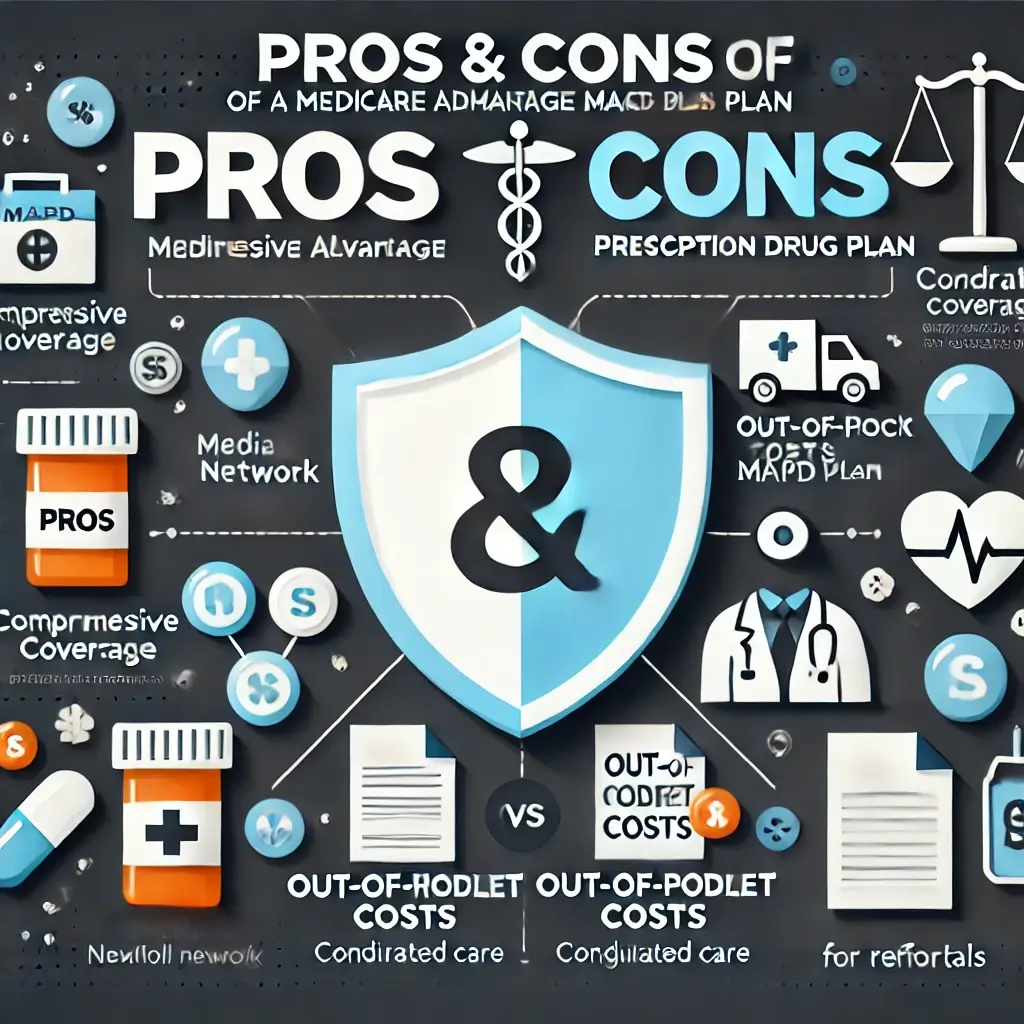When it comes to supplementing your Medicare coverage, Medigap (also known as Medicare Supplement Insurance) is a popular option. Designed to cover the gaps left by Original Medicare, Medigap can help you manage out-of-pocket expenses such as copayments, coinsurance, and deductibles. However, as with any healthcare plan, Medigap has its advantages and disadvantages. In this post, we’ll explore the pros and cons of a Medigap plan to help you decide if it’s the right choice for your healthcare needs.
Pros of a Medigap Plan
- Predictable Out-of-Pocket Costs One of the main benefits of Medigap is the predictability it offers. By covering the gaps in Original Medicare, Medigap helps you avoid unexpected out-of-pocket expenses like hospital stays or doctor visits. With a Medigap plan, you can anticipate your healthcare costs more easily, making it simpler to budget for the future.
- Nationwide Coverage Medigap offers flexibility in choosing healthcare providers. You can visit any doctor, specialist, or hospital in the U.S. that accepts Medicare, without the need to stay within a specific network. This is especially beneficial for those who travel frequently or live in multiple states throughout the year.
- No Referrals Required With Medigap, you don’t need referrals to see specialists, giving you more control over your healthcare decisions. This eliminates the need to go through a primary care doctor for approval, streamlining the process when you need to see a specialist.
- Standardized Coverage Medigap plans are standardized by the federal government, meaning the benefits for each plan type (Plan A, Plan B, Plan G, etc.) are the same no matter which insurance company you choose. This makes comparing Medigap plans much easier, as you know what you’re getting no matter which insurer you go with.
- No Network Restrictions Unlike Medicare Advantage plans, which often limit you to a network of providers, Medigap allows you to see any healthcare provider that accepts Medicare. This flexibility can be especially valuable if you prefer to choose your own doctors or need specialized care that may not be available within a specific network.
Cons of a Medigap Plan
- Higher Premiums While Medigap helps reduce out-of-pocket expenses, it often comes with higher monthly premiums compared to Medicare Advantage plans. These premiums can increase as you age, and depending on the plan you choose, they may represent a significant portion of your healthcare budget.
- No Prescription Drug Coverage Medigap plans do not include prescription drug coverage, so you will need to enroll in a separate Medicare Part D plan to cover your medications. This means managing an additional plan, which could lead to more costs and complexity.
- No Extra Benefits Medigap plans cover only what Original Medicare does not, meaning they don’t offer extra benefits like vision, dental, or hearing coverage. If these services are important to you, you may need to purchase separate insurance or pay for them out-of-pocket.
- No Out-of-Pocket Maximum While Medigap reduces many out-of-pocket expenses, there is no cap on your out-of-pocket spending like there is with Medicare Advantage plans. This means that while Medigap covers most of your costs, you could still face significant expenses for services that aren’t fully covered by Medicare or Medigap.
- Not as Cost-Effective for Healthy Individuals If you are generally healthy and don’t require frequent medical care, Medigap may be less cost-effective than a Medicare Advantage plan. With higher premiums and no extra benefits, you may end up paying more for coverage you rarely use.
Is a Medigap Plan Right for You?
Medigap plans can offer peace of mind by reducing out-of-pocket costs and providing broad access to healthcare providers. However, they may not be the best fit for everyone. Consider a Medigap plan if:
- You want predictable healthcare costs and are willing to pay higher premiums for added coverage.
- You travel frequently or live in multiple locations and need flexibility in choosing healthcare providers.
- You don’t want to deal with network restrictions or the need for referrals.
On the other hand, if you’re looking for an all-in-one plan that includes extra benefits like dental and vision or if you’re generally healthy and want lower premiums, you might want to consider a Medicare Advantage plan instead.
Conclusion
Medigap plans offer valuable coverage for those looking to reduce out-of-pocket expenses and enjoy nationwide access to healthcare providers. However, the higher premiums and lack of prescription drug coverage may not be ideal for everyone. As with any healthcare decision, it’s important to carefully consider your healthcare needs, budget, and preferences before choosing the plan that’s right for you.


